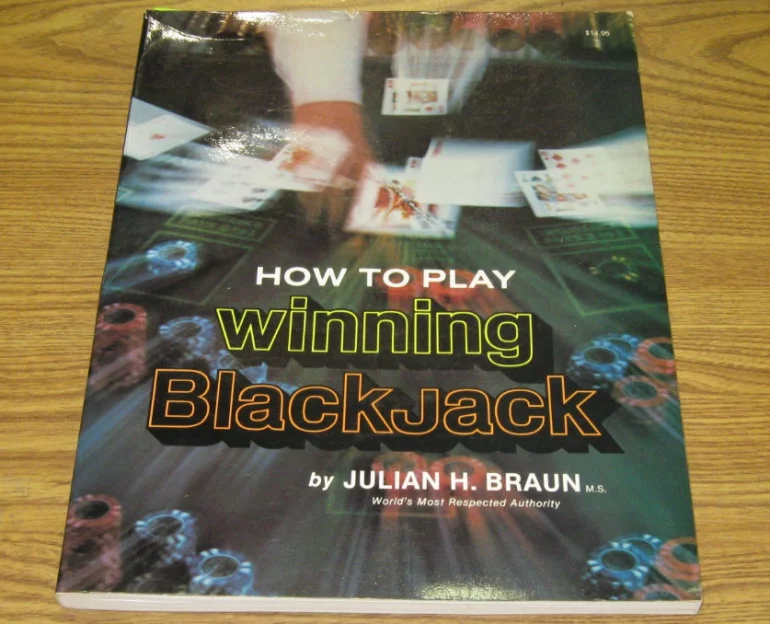Have you ever heard of the Blackjack Hall of Fame? This U.S. organization, established in 2003 and based at Barona Casino in San Diego, California, features a list of the most prominent figures who have made their mark on the history of blackjack. The list primarily includes the most skilled gamblers, who are renowned for their accomplishments.

You can find a wonderful man among its members who has never been a professional gambler and has rarely visited casinos. We are talking about Julian Braun, a programmer from IBM.
He entered the Hall of Fame thanks to his incredibly important research in blackjack strategy.
Julian created several excellent and recognized card counting systems based on the legendary Edward Thorp's developments. These systems are still actively used by gamblers worldwide.
Julian Braun’s Brief Biography
Julian was born in 1929 in Chicago. Gifted with an inquisitive mind from childhood, he earned a reputation as a nerd among his peers. After college, Braun became a student and successfully graduated from the Illinois Institute of Technology with a bachelor's degree in Mathematics and Physics.
In the fifties, he served in the army and continued his studies at the University of California in San Diego.
After graduation, Julian worked for one of Chrysler’s subsidiary companies. He later transitioned to IBM, where he remained for about thirty years, establishing himself as one of the leading experts in the research laboratory of the company's Chicago office.
Interest to Blackjack
Braun bought Edward Thorp's famous book, Beat the Dealer, which focused on the blackjack card counting system. At that time, this work was likely the only publication of its kind. Julian was intrigued by Thorp’s insights, but he couldn't ignore the drawbacks of this strategy. Furthermore, he wanted to modify this method to enhance its effectiveness.Braun wrote a letter to Thorp, telling him about himself, asking him to send a copy of the program, and explaining that he wanted to improve it. Remember that Julian had access to the most advanced computer technology that only a few could afford.
Braun improved Thorp’s system, making it easier to master and more practical. Additionally, it enabled users to obtain more stable results with reduced dispersion levels.
It should be noted that Thorp immediately made these changes to his book Beat the Dealer. The 1966 edition included the upgraded technique. However, the author did not forget to mention Julian.
Play free blackjack on Casinoz.
| Name | Soft | RTP | ||
|
|
99.92% | |||
|
|
99.91% | |||
|
|
99.87% | |||
|
|
99.78% | |||
|
|
99.71% | |||
|
|
99.7% | |||
|
|
99.69% | |||
|
|
99.65% | |||
|
|
99.63% | |||
|
|
99.63% |
Experience at Casinos
In the late 1960s, Julian decided to test his system personally. He visited Reno and played at the Nevada Club Casino, which offered single-deck blackjack with the most favorable rules.
Braun played for a few days without exceeding the ten-dollar limit per box, but even such a small range was sufficient to stay in the black, maintain a positive balance, and steadily increase profits.
It ended when the manager approached him and said that the administration considered him to be a persona non grata. Brawn bowed politely; since then, he has never gambled at casinos.
Further Activities
Braun continued to develop blackjack strategies. He collaborated with the legendary Lawrence Revere, resulting in the publication of the book Playing Blackjack as a Business. Lance Humble, author of The World’s Greatest Blackjack Book, also utilized Julian's innovations.
Braun finally published his book, How to Play Winning Blackjack, in 1980. It explains all the nuances of the optimal basic strategy and provides additional recommendations for gamblers, making it a practical guide for users of different skill levels.
Julian shared the following about his work:
I have reasons to write this book. First of all, some of my ideas and observations described in it may be helpful to hundreds of thousands of blackjack gamblers who have been or will be fond of this game just as I am.
I must warn readers that I am neither a great storyteller nor a former pit boss (God forbid!). Therefore, unlike other books on this topic, you will find neither meaningful nor exciting insider stories about the colorful characters found on both sides of the table. Instead, I aim to describe my work over the past eighteen years as clearly as possible.
Braun's book has not reached international bestseller status. However, it mainly appeals to true professionals, while the general public likely finds it dull.
Julian died in September 2000. The media did not cover his death, so many people noticed it a few months later. He entered the Blackjack Hall of Fame in 2005.
Conclusion
Julian Braun was a true blackjack romantic. He viewed this game as a phenomenon rather than a means to make a profit. Furthermore, it appears he never prioritized wealth.
If you're curious about the personality of this blackjack genius, we suggest checking out an interview he did with another blackjack expert, Arnold Snyder, in 1981. It's available on Snyder’s official website.





















